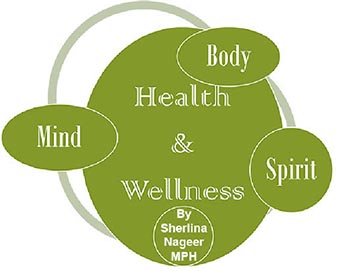I would like to start this column by stating that Ebola is not the biggest problem the world currently faces. The fact is that there are other diseases that are more contagious, as well as with a higher death rate than Ebola. However, media reports about the current outbreak have many people very worried and it is important that proper and accurate information be available so that panic can be reduced and people know what they can do to protect themselves and their loved ones.
Like any other disease, prevention is key. As such, it is crucial that we are aware about how Ebola is transmitted.
Ebola is NOT airborne. It cannot be gotten simply by breathing the same air or being in the same room, bus, plane etc as an infected person. Transmission of the Ebola virus requires direct contact with blood, secretions, organs or other body fluids of infected living or dead persons or animals. (Note: The bodies of people who have died from Ebola are still infectious.)
 Bodily fluids include blood, faeces, urine, saliva, semen, vaginal secretions, sweat, tears, and saliva.
Bodily fluids include blood, faeces, urine, saliva, semen, vaginal secretions, sweat, tears, and saliva.
For infection to happen, the healthy person must have a cut or break in their skin, or infected fluid must come into contact with the mucous membranes of the eye, mouth, nose, vagina, or anus.
Infection can also occur if broken skin or mucous membranes of a healthy person come into contact with environments that have become contaminated with an Ebola patient’s infectious fluids such as soiled clothing, bed linen, or used needles.
However, while the virus can survive for about a day outside of the body, it can be killed by bleach, soap, detergent, and direct sunlight.
Another important fact is that Ebola is survivable; getting Ebola is NOT a death sentence. In fact, over half the people who get Ebola generally recover and survive. Healthcare workers and those who prepare bodies for burial are at highest risk because they have more and closer contact with the virus, but they can be protected by following and maintaining proper infection control precautions at all times. Simple things like consistent hand washing by all can also help reduce infection.
Also notable is that one does not have to be a doctor/nurse or have super fancy, specialized equipment in order to successfully deal with Ebola. Persons in Liberia – one of the most affected countries – have been caring for family members at home, with one young woman in particular, Fatu Kekela, saving 3 out of the 4 family members she nursed without getting sick herself, by using common, easily available items like garbage bags, raincoat, gloves, rubber boots etc (Read more about Fatu here- http://edition.cnn.com/2014/09/25/ health/ebola-fatu-family/).
Ebola, like many other diseases, spreads more widely in areas where hospitals and communities have insufficient infection control and limited access to resources such as running water. This is something that we, in Guyana – with our already poor sanitation situation and with health centres and clinics in some areas (Charity, for example, as I personally observed earlier this year) not having running water – should indeed be concerned about. Making sure that all health centres have proper water and sanitation facilities, as well as being properly and regularly stocked with basic supplies such as gloves and garbage bags (also something that has not been happening in all regions of Guyana) are the first steps that should be taken to not only fight Ebola, but to provide quality healthcare to Guyanese at all times.
Ebola is just one of many things that any healthcare system has to deal with; if healthcare workers are well trained, disciplined, and committed to providing the best possible care to all, each and every day, and if a supportive public health infrastructure is in place, then Ebola, and all other diseases can be contained. This should be our focus today as we face Ebola, as well as every day as we deal with all the other familiar foes like malaria, chikungunya, dengue, HIV/AIDS, maternal mortality, etc.
The initial symptoms of Ebola after all – fever, headache, weakness, muscle pain, sore throat – are very common and mimic symptoms of many other illnesses. (Ebola however, progresses to severe vomiting, diarrhoea, internal and external bleeding, etc). As such, when we improve our response to the familiar illnesses like malaria, dengue, and chikungunya, we improve our changes of more successfully responding to Ebola.
However, as mentioned before – prevention is key. Securing our borders and aggressively and accurately surveying and tracking all individuals who enter Guyana is the first step in Ebola control (and would assist in numerous other areas as well). The point I’m trying to make is that Ebola should be seen as an opportunity for all those working in our health and security sectors to prove and improve themselves. As we prepare for Ebola, we will gain in better health and security overall.
One other thing that it is important to know is that the Ebola virus remains in the semen and breast milk of survivors for up to 3 months. As such, men who have been infected with Ebola should refrain from sexual intercourse for at least 3 months after they have recovered, or should use condoms every time they have any kind of sexual intercourse to prevent further spread of the virus. Women survivors should not breastfeed else they infect their children this way.
In conclusion, remaining calm is essential. It is easy to become scared and hysterical. However, panic doesn’t help any situation and it is far better to focus on becoming informed and then doing all you can to protect yourself and your loved ones. Remember that Ebola is preventable and Ebola is survivable. Simple things like proper sanitation, a well-trained and disciplined cadre of health care workers, and accurate surveillance of travellers can contain this virus. Let us use this time to improve our systems so that we can enjoy better health, wellness, and quality of life each and every day.
Sherlina can be contacted at ssnageer@yahoo.com










